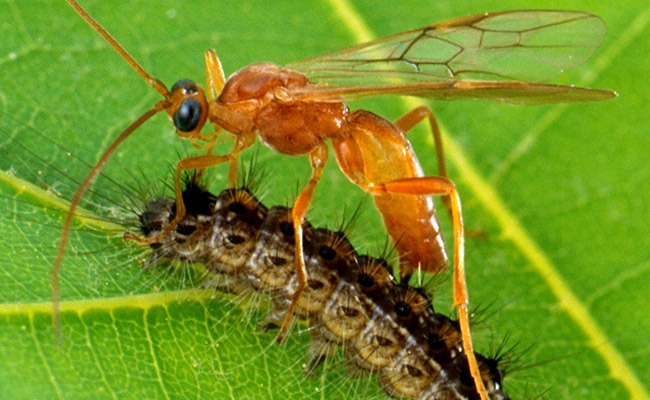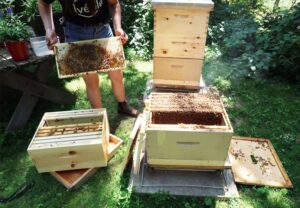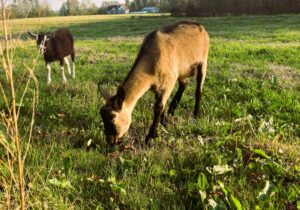
biological control.jpg

Biological Control
Introduction: Biological control is a sustainable pest management strategy that harnesses the natural enemies of pests to regulate their populations. By utilizing predators, parasitoids, pathogens, and other organisms, biological control offers an eco-friendly alternative to chemical pesticides, reducing reliance on synthetic inputs and minimizing environmental impacts.
Types of Biological Control:
- Predation:
- Parasitism:
- Parasitoids are insects that lay their eggs on or inside host pests, where their larvae develop and ultimately kill the host. Parasitoid wasps, such as Trichogramma and Encarsia species, target pest eggs or larvae, providing effective biological control in agricultural crops.
- Microbial Control:
- Microbial agents, such as fungi, bacteria, and viruses, can infect and kill pest insects or their larvae. Beauveria bassiana and Metarhizium anisopliae are fungal pathogens commonly used for biological control of soil-dwelling pests like white grubs and root weevils.
Benefits of Biological Control:
- Environmentally Friendly:
- Biological control minimizes the use of chemical pesticides, reducing environmental pollution, and preserving beneficial insects, pollinators, and natural ecosystems.
- Target Specificity:
- Natural enemies often exhibit host specificity, targeting only certain pest species or life stages while sparing non-target organisms. This precision enhances pest control efficacy while minimizing collateral damage.
- Self-Sustaining:
- Once established, populations of natural enemies can self-perpetuate and provide ongoing pest suppression without the need for repeated interventions, reducing long-term management costs.
Challenges and Considerations:
- Compatibility with Pesticides:
- Some chemical pesticides may be harmful to natural enemies, compromising biological control effectiveness. Integrated Pest Management (IPM) approaches seek to minimize pesticide use to support biological control.
- Release and Establishment:
- Successful implementation of biological control often requires careful selection, mass rearing, and release of natural enemies into target environments. Factors such as timing, dosage, and environmental conditions influence establishment success.
- Non-Target Effects:
- While natural enemies are generally host-specific, there is a risk of unintended impacts on non-target organisms or beneficial insects. Monitoring and research help assess potential risks and mitigate adverse effects.
Conclusion: Biological control offers a sustainable and environmentally sound approach to pest management, leveraging nature’s own mechanisms to regulate pest populations. By promoting the conservation and augmentation of natural enemies, agricultural systems can achieve effective pest control while minimizing reliance on chemical inputs and preserving ecosystem health.
Fall off the barn roof and busted your keister? Life on the farm or ranch can be tough on the bum. Need a break? Laugh it off at FarmerCowboy.com, the #1 farm humor site. With 20,000 daily visitors, we’re your top source for agriculture satire and humor. Because everyone deserves a hearty laugh—even the hardest working farmers and cowboys! Join us and turn those long days into fun tales at FarmerCowboy.com.
Originally posted 2022-07-24 18:12:50.
Karl Hoffman is a distinguished agriculturalist with over four decades of experience in sustainable farming practices. He holds a Ph.D. in Agronomy from Cornell University and has made significant contributions as a professor at Iowa State University. Hoffman’s groundbreaking research on integrated pest management and soil health has revolutionized modern agriculture. As a respected farm journalist, his column “Field Notes with Karl Hoffman” and his blog “The Modern Farmer” provide insightful, practical advice to a global audience. Hoffman’s work with the USDA and the United Nations FAO has enhanced food security worldwide. His awards include the USDA’s Distinguished Service Award and the World Food Prize, reflecting his profound impact on agriculture and sustainability.






